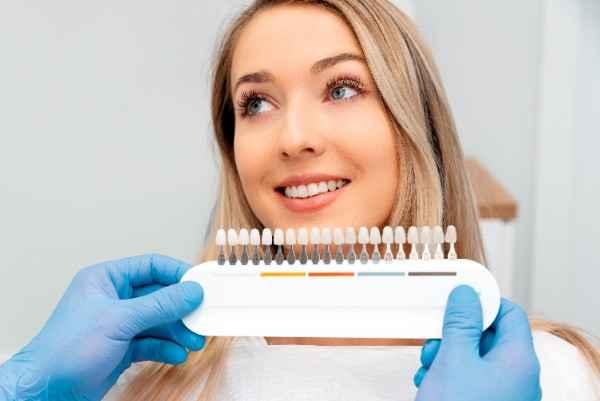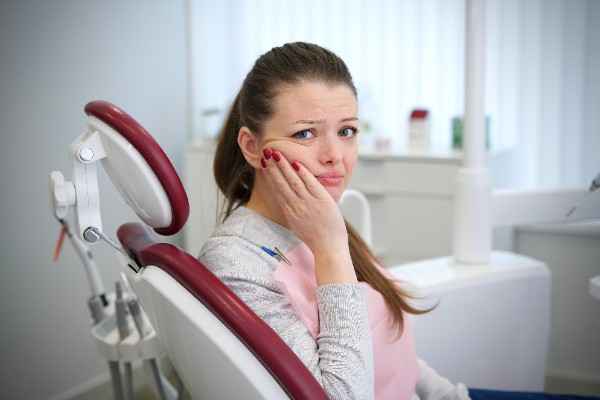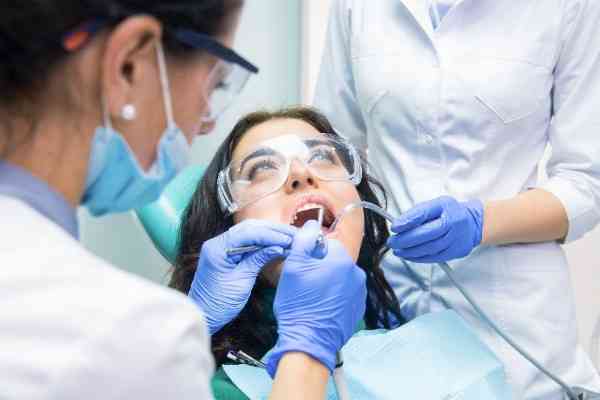Notifications

8 minutes, 35 seconds
-5 Views 0 Comments 0 Likes 0 Reviews

Imagine moving towards a classic, beautifully aligned smile without the hassle, discomfort, or awkwardness that often comes to mind with traditional braces. Modern orthodontics in Widnes has transformed how people approach straightening their teeth. Not only are treatments more discreet and comfortable, but emergency situations during orthodontic care are managed with efficiency and understanding. Whether it’s a sudden brace mishap or an unexpected ache, knowing how to handle dental emergencies calmly is just as important as the treatment itself.
Not every dental issue needs urgent attention, but recognising what truly requires immediate care helps protect your teeth and peace of mind.
Consider these situations as genuine emergencies:
A tooth that has been completely knocked out or is loose to the point of falling out
Severe, unmanageable pain that disrupts your daily life
Broken orthodontic parts causing injury or preventing you from eating
Sudden swelling or signs of infection in your mouth or face
Continuous bleeding that doesn’t stop after gentle pressure
Anything less severe can often be managed at home or by booking a routine appointment, but when you’re in doubt, it’s wise to contact your emergency dentist in Widnes promptly.

Knowing what to do right away can make all the difference. Here’s how to manage common orthodontic mishaps and dental discomforts before your visit.
A poking wire or a loose bracket is more than just irritating; it can hurt the inside of your mouth and affect your progress. Instead of panicking, try these tips:
Use orthodontic wax to cover any sharp edges. This creates a smooth surface that protects your cheeks and gums.
If wax isn’t available, a piece of sugar-free gum can provide temporary cushioning.
Avoid fiddling with wires or trying to cut them yourself, as this might cause more damage or accidentally swallow parts.
Apply a cool compress outside your cheek to reduce swelling and numb pain. Over-the-counter pain relief can help, but steer clear of anything that might thin your blood if you’re bleeding. Saltwater rinses can also soothe irritated gums but avoid vigorous spitting that could worsen bleeding.
For a tooth that’s been loosened or knocked out, gently rinse it (avoid scrubbing) and try to keep it moist by storing it in milk or your saliva. This can help preserve the tooth for reimplantation by your emergency dentist in Widnes.
Today’s orthodontics has evolved dramatically, reducing many traditional causes of discomfort and emergency visits.
Invisible and removable, clear aligners (like Invisalign) minimise the chance of broken brackets or poking wires. They’re gentler on soft tissues and allow you to maintain better oral hygiene, which lowers infection risks.
These braces use specialised clips instead of elastic bands to hold wires in place, reducing friction and often requiring fewer adjustments. Their design also lessens irritation, meaning fewer emergency visits due to broken parts.
These advanced wires respond to body heat by gently guiding teeth into place, reducing sharp pokes and sudden pressure spikes that sometimes cause discomfort or emergencies.
Mild, intermittent discomfort: Usually manageable and often part of normal treatment.
Persistent or worsening pain: Could indicate an underlying issue needing attention.
Sharp, stabbing pain or swelling: These symptoms suggest infection or trauma requiring prompt care.
Pain coupled with fever or difficulty swallowing: Call emergency services immediately, as this could signal serious infection.
Visiting an emergency orthodontist in Widnes is designed to relieve your distress swiftly and keep your treatment on track.
Your orthodontist will first listen to your concerns and examine the affected area carefully. Modern digital imaging may be used for an accurate diagnosis.
Pain control comes first. Depending on the issue, the orthodontist might smooth sharp wires, reposition brackets, or provide protective coverings.
Sometimes a quick fix is all that’s needed; other times, a follow-up appointment for a more comprehensive repair is scheduled. The goal is always to stabilise the situation and reduce discomfort.
While some accidents happen despite our best efforts, many orthodontic emergencies are avoidable. Here’s how you can help keep your treatment running smoothly:
Stick to food guidelines: Avoid hard, sticky, or chewy foods that can damage braces.
Wear a mouthguard during sports: Protects your teeth and appliances from sudden impacts.
Maintain excellent oral hygiene: Healthy gums and teeth reduce the risk of infections.
Attend regular check-ups: Early detection of potential issues can prevent emergencies.
Keep your orthodontic wax handy: It’s a small but effective tool to manage minor discomforts.
By staying proactive, you not only protect your smile but also help your orthodontist Widnes make your treatment efficient and comfortable.
Your orthodontist Widnes is your primary partner in designing and maintaining your smile journey. However, unexpected issues sometimes require urgent care from an emergency dentist in Widnes, who specialises in fast, effective treatment of dental injuries and infections.

Dental emergencies can feel stressful, but staying calm helps you manage the situation wisely. Taking a moment to assess what’s wrong, applying first aid measures, and contacting the right professional sets the stage for a smooth recovery.Your emergency dentist in Widnes and orthodontist Widnes are there to support you through any bumps along the way.
Achieving a classic, confident smile is no longer about enduring discomfort or outdated treatments. Thanks to modern orthodontic tools, your path is gentler and more personalised than ever. Understanding what constitutes a dental emergency, knowing simple first-aid steps, and trusting the expertise of your emergency dentist and orthodontist in Widnes ensures you can face any dental hiccup with confidence. The result? A beautifully aligned smile built on care, comfort, and clarity

